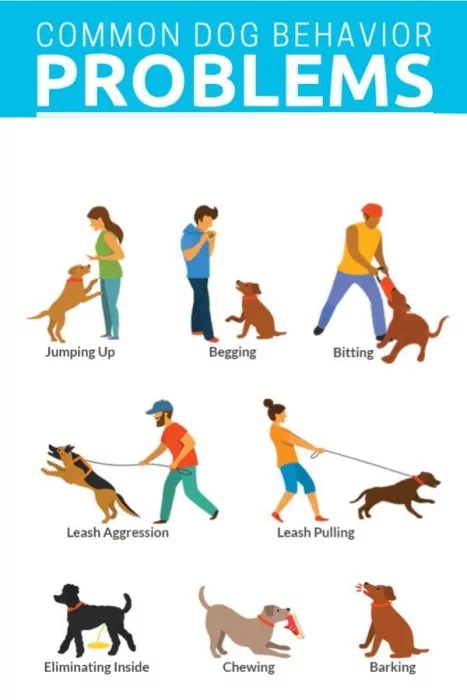Why Dog Training Near Me is Essential for Your Canine Buddy
Why Dog Training Near Me is Essential for Your Canine Buddy
Blog Article
Unlock Your Pet's Possible: Proven Canine Training Methods for Success
Efficient canine training is a nuanced process that pivots on understanding canine behavior and employing medically backed strategies. By incorporating positive reinforcement, establishing clear commands, and prioritizing socialization, dog proprietors can cultivate an effective connection with their family pets.
Recognizing Pet Dog Behavior
Comprehending pet actions is vital for effective training and promoting a favorable relationship between canines and their owners. A comprehensive grasp of canine body language, articulations, and social interactions is important for acknowledging their feelings and needs. Dogs communicate mainly with non-verbal signs; for instance, a wagging tail may show exhilaration, while pinned ears can signal fear or entry.

Additionally, ecological elements play a substantial function in forming a pet dog's actions. Modifications in regular, new surroundings, or the visibility of unfamiliar individuals can cause stress and anxiety or anxiety in canines. Acknowledging these triggers enables proprietors to alleviate negative reactions and create appropriate training strategies.
Inevitably, a deep understanding of canine actions lays the structure for effective training approaches, enhancing both actions and the overall bond between the pet and its owner. Dog training. This knowledge is indispensable for fostering a well-adjusted, satisfied canine companion
Positive Support Techniques
Reliable training relies greatly on favorable support methods, which have been shown to yield substantial lead to shaping desired habits in pet dogs. This method includes compensating a pet dog for exhibiting details habits, thus raising the probability that these habits will certainly be repeated. Incentives can take numerous kinds, including treats, praise, playthings, or play, relying on what encourages the individual canine.

It is crucial to gradually terminate rewards as the canine learns the actions, transitioning to intermittent reinforcement. This strategy keeps the behavior over time while stopping reliance on continuous benefits. By focusing on favorable reinforcement, fitness instructors can cultivate a relying on connection with their pet dogs, advertising a cooperative and healthy training environment that improves total obedience and performance.
Establishing Regular Commands
A fundamental aspect of successful pet dog training is the facility of consistent commands. Uniformity in commands is essential for reliable interaction in between the instructor and the pet dog. When commands are uniform, canines find out to connect particular words with preferred habits, which speeds up the training process and improves understanding.
To establish constant commands, it is vital that all family members utilize the same terms and gestures. If one person utilizes "rest" while an additional claims "rest down," it can create complication for the dog. Select clear, unique words for commands and guarantee every person involved in the dog's training sticks to these choices.
In addition, rep is key. Reinforce commands with frequent technique, guaranteeing that the canine gets adequate possibilities to react appropriately. When a pet efficiently complies with a command, instant favorable reinforcement needs to follow. This might be in the kind of treats, praise, or playtime, solidifying the connection in between the activity and the command.
Last but not least, be patient. Establishing consistent commands requires time and effort. With dedication and quality, you will certainly assist your dog develop a strong understanding of assumptions, eventually resulting in a mannerly buddy.
Socialization and Direct Exposure
Interacting socially a pet is essential for cultivating a well-adjusted and certain buddy. This process involves subjecting your pet to a variety of settings, people, and other animals to develop their social abilities and flexibility. Early socializing, preferably in between the ages of three to fourteen weeks, is vital, as it prepares for a pet's future behavior.
During socializing, aim to offer positive experiences in various setups, such as parks, hectic streets, and homes with other animals. Present your pet dog to numerous stimuli, consisting of sounds, sights, and smells, making sure that each encounter is look at here satisfying. This exposure aids alleviate worry and anxiousness, paving the way for a much more resistant canine.
Taking part in controlled team play sessions with other dogs can also other boost social skills, instructing your pet dog suitable communications and boundaries. Constantly check your pet's convenience level throughout these experiences, slowly increasing exposure as their self-confidence expands. Keep in mind, the goal is to produce an all-around pet dog that grows in diverse circumstances, promoting an unified partnership with both people and various other pets. Focusing on socializing will significantly add to your pet's total joy and behavior throughout their life.
Overcoming Common Educating Difficulties
Another frequent issue is diversion. Pet dogs might struggle to concentrate in strange or hectic setups. Slowly desensitize your pet dog to distractions by beginning training in a silent environment and slowly introducing more stimulations as they become skillful (dog training charlotte). Favorable reinforcement strategies, such as deals with and praise, can keep motivation and focus.
In addition, behavior issues like leaping or excessive barking can come to be aggravating. Address these by educating alternative habits, such as resting calmly when welcoming guests. Consistency and patience are important; reinforce wanted behaviors continually and stay clear of abuse, which can lead to complication.
Finally, recognize that each dog is special, and training timelines might vary. Tailor your approach to your dog's specific requirements, and seek expert assistance if needed. With willpower and the ideal approaches, overcoming these challenges can bring about a trained, satisfied canine buddy.
Final Thought
In verdict, unlocking a canine's prospective requires a comprehensive approach that incorporates an understanding of canine actions, the reference application of favorable reinforcement methods, and the establishment of consistent commands. Early socialization and direct exposure to varied settings additionally boost a canine's versatility and confidence. By dealing with typical training challenges with tailored techniques and patience, a participating and harmonious connection in between pet dog and trainer can be promoted, inevitably leading to a well-behaved companion qualified of growing in various scenarios.
Efficient dog training is a nuanced procedure that hinges on understanding canine habits and employing clinically backed strategies.Recognizing dog actions is vital for efficient training and cultivating a favorable partnership in between canines and their proprietors.Reliable training depends heavily on favorable reinforcement techniques, which have actually been revealed to yield considerable outcomes in forming desired habits in dogs. When commands are consistent, dogs learn to link details words with wanted behaviors, which increases the training process and boosts understanding.
In final thought, unlocking a dog's potential necessitates a comprehensive method that includes an understanding of canine actions, the application of favorable reinforcement techniques, and the facility of regular commands.
Report this page